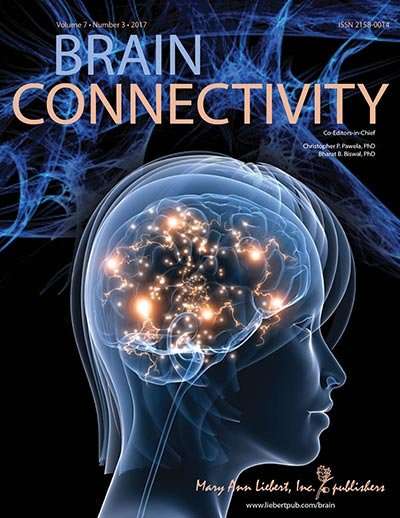Credit: Mary Ann Liebert, Inc., publishers
While the gene mutation that causes Huntington's disease has been associated with changes in certain types of functional brain connectivity, a new study that examined connectivity across the whole brain has now identified alterations in functional connectivity in additional brain networks and has also shown significant associations between the extent of the degree of gene mutation and measures of motor and cognitive function. These novel findings in carriers of the Huntington's disease gene mutation are presented in an article published in Brain Connectivity.
The article entitled "Whole-Brain Connectivity in a Large Study of Huntington's Disease Gene Mutation Carriers and Healthy Controls" is coauthored by Jane Paulsen, University of Iowa, Iowa City, Flor Espinoza, The Mind Research Network and University, Albuquerque, NM, and colleagues. The researchers looked for correlations between the number of trinucleotide (CAG) repeats (the disease-causing gene mutation) and measures of whole-brain connectivity obtained on resting-state functional magnetic resonance imaging (fMRI). They compared the data acquired from individual carriers of the Huntington disease gene with various CAG repeat lengths and healthy control subjects.
"This analysis expands on previous Huntington disease studies by investigating associations between CAG repeat length and whole brain resting fMRI connectivity and also performs association tests between the identified CAG dependent connectivity and motor and cognitive performance," states Bharat Biswal, PhD, Co-Editor-in-Chief of Brain Connectivity and Chair of Biomedical Engineering, New Jersey Institute of Technology. "These results provide a step forward in understanding connectivity alterations in Huntington disease gene carriers."
More information: Flor A Espinoza et al, Whole-brain connectivity in a large study of Huntington's disease gene mutation carriers and healthy controls, Brain Connectivity (2018). DOI: 10.1089/brain.2017.0538
Provided by Mary Ann Liebert, Inc
























